John Hendrickson: Is former Vice President Mike Pence’s view on conservatism correct?
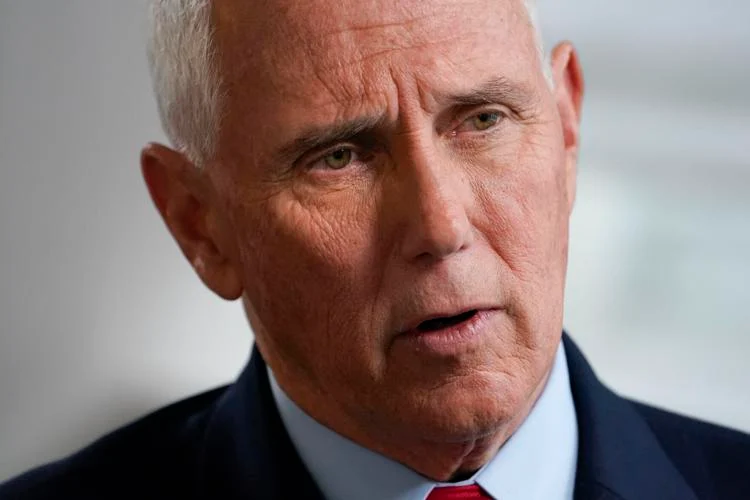
Former Vice President Mike Pence, in a speech before the New Hampshire Institute of Politics at Saint Anselm College and in an article in The Wall Street Journal, warned Republicans and conservatives about the danger of populism. The former Vice President argues, in echoing Ronald Reagan’s 1964 address, that it is “a time for choosing” for Republicans whether to continue to follow the “siren song” of populism or return to true conservatism. It is clear that Pence is not only drawing a line in the sand and forcing a debate over conservatism, but also distancing himself from former President Donald Trump and those who support his policies. Nevertheless, Pence fails to understand that the conservative populism he is denouncing is actually rooted within the American conservative tradition. Debates within and amongst conservatives is nothing new. The conservative movement contains various “schools of intellectual thought” over what conservatism means and how conservatives should shape public policy. Vice President Pence argues that the Republican Party must return to traditional conservatism. “If we are to defeat Joe Biden and turn America around, the GOP must be the party of limited government, free enterprise, fiscal responsibility and traditional values,” wrote Pence. Pence is defining traditional conservatism based upon the principles of limited government, free enterprise, fiscal responsibility, and traditional values. Further, he correctly notes that individual “rights come from God and nature, not from the state.” In addition, Pence argues that just “like our founders, we know the imperfect nature of men and women and that granting them unlimited power imperils liberty.” This is an important pillar of conservatism, that is, that human nature is flawed because of original sin. Pence is also correct in referencing the need for conservatives to uphold and defend constitutional principles such as federalism. Conservatives would largely agree with Pence’s definition of conservatism, but he only offers a surface view of conservatism. Pence warns about the danger of populism, and he argues that this is a political tool of progressives and he references William Jennings Bryan and the “Kingfish” Huey Long as examples. Further, Pence argues that populists within the Republican Party are a threat to limited government, traditional values, and even the Constitution. Further, these Republican populists favor abandoning “American leadership on the world stage” and “embracing a posture of appeasement in the face of rising threats to freedom.” Pence’s other indictment is that Republican populists are abandoning free enterprise. Is Pence correct that populism is not only wrong, but also rooted in liberalism and progressivism and that these Republican populists are not conservative? First, Pence needs to define what policies of the Trump administration were not conservative. Pence acknowledges that the Trump administration governed as conservatives, but now Trump has abandoned conservatism. Does this mean that the Trump America First agenda was conservative according to Pence? In 2016, President Trump campaigned on what was considered to be a new approach to conservatism. He called for restrictions on immigration, building a border wall to secure the border, a restrained foreign policy, and he was highly critical of free trade and openly called for tariffs to protect manufacturing. This agenda has been referred to as America First, conservative nationalism, and conservative populism. It also fits within the framework of the paleoconservative tradition. Nevertheless, the ideas that shaped President Trump were not new, nor were they a departure from conservatism as former Vice President Pence would suggest. In fact, President Trump was rediscovering an older conservative Republican tradition. As an example, Patrick J. Buchanan wrote that “in leading Republicans away from globalism to economic nationalism, Trump is not writing a new gospel. He is leading a lost party away from a modernist heresy – back to the Old-Time Religion.” Buchanan, during the 1990s, campaigned for the Republican nomination championing similar ideas as Trump. The conservative nationalist tradition can be traced back to the American founding. Specifically, Alexander Hamilton and the Federalists. President Calvin Coolidge even credited Hamilton and the Federalists and later the Whigs as the source of the Republican Party’s heritage. Former Vice President Pence should consider the conservatism of the 1920s. Conservatives such as Presidents Warren G. Harding and Calvin Coolidge not only challenged progressives, but their policy agenda was based on conservative nationalism. Harding and Coolidge not only supported a restrained foreign policy, but also protective tariffs and restricting immigration. They also placed an emphasis on limiting government by reducing spending, paying down the national debt, and reducing tax rates. Harding and Coolidge actually reduced government. Vice President Pence appears to be fighting against conservative nationalism and embracing the neoconservative agenda that was embraced by President George W. Bush’s administration. Neoconservatism and the Pence-style of conservatism dominated the Republican Party before Trump. What were the results: a full retreat on the cultural war and traditional values, engaging in costly wars to promote democracy, free trade agreements which led to the devastation of manufacturing, middle-class jobs, and massive trade deficits which led to the rise of China, and uncontrolled immigration. Plus, the federal government, along with the national debt, continued to grow. It was this “traditional” conservatism that idolized and worshiped at the golden alter of democracy and free trade. Is this the conservatism that we want to return to as a nation or a movement? In fact, during the first Republican presidential candidate debate Vice President Pence resembled former President George W. Bush more than President Ronald Reagan, especially in his advocacy of sending more dollars and support to Ukraine. This foreign policy approach, along with free trade, has more in common with progressives such as Presidents Woodrow Wilson and Franklin D. Roosevelt. Pence’s approach to Ukraine is Wilsonian. Pence is attempting to proclaim himself as the true heir to Reagan. When examining the legacy of President Reagan too many conservatives forget that Reagan, even with all of the free market and liberty rhetoric, often practiced a restrained foreign policy and implemented trade policies that were considered protectionist. Some even argued that Reagan was the most
Terri Sewell votes in favor of Puerto Rico Status Act
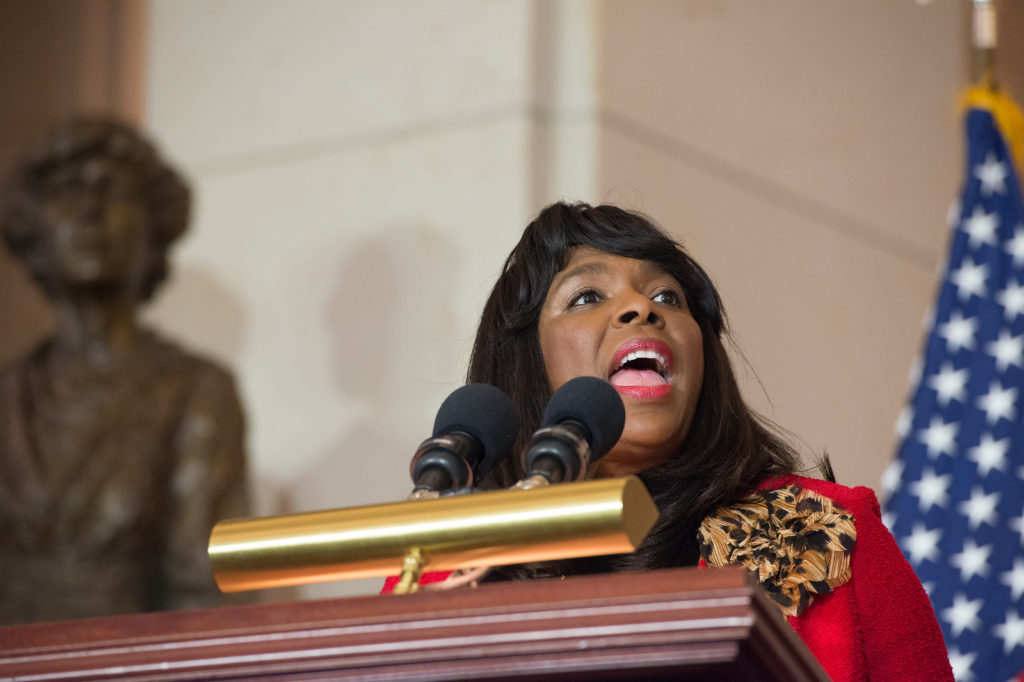
On Thursday, Congresswoman Terri Sewell voted in favor of H.R. 8393, the Puerto Rico Status Act. It would allow the residents of Puerto Rico to vote for their political status moving forward. The Puerto Rico Status Act is a compromise between the sponsors of two bills seeking to resolve Puerto Rico’s territorial status: the Puerto Rico Statehood Admissions Act and the Puerto Rico Self-Determination Act. It would provide residents an opportunity to select from three non-territorial, fully self-governing political status options: Statehood, Independence, and Sovereignty in Free Association with the United States. The bill passed the House of Representatives on a vote of 233 to 191. “I’m proud to stand in support of self-determination for the people of Puerto Rico in voting for the Puerto Rico Status Act,” Rep. Sewell stated. “For too long, the residents of Puerto Rico have been denied the opportunity to freely determine their own political status. This bill is about righting that wrong and placing the future of Puerto Rico back into the hands of Puerto Ricans where it belongs.” The Puerto Rico Status Act would: · Authorize a federally sponsored plebiscite to resolve Puerto Rico’s political status. · Specify and define Puerto Rico’s non-territorial status options: Independence, Sovereignty in Free Association with the United States, and Statehood. · Provide for an objective, nonpartisan, federally funded voter education campaign leading up to the vote. · Establish a process and timeline for the U.S. Department of Justice to review the plebiscite voter education materials and plebiscite ballot design. · Authorize necessary funds to carry out an initial plebiscite and, if necessary, a runoff plebiscite. · Describe the transition to and implementation of each status option in sufficient detail for eligible voters in Puerto Rico to make an informed choice about Puerto Rico’s future political status. · Ensure the result of the plebiscite is binding and implement the option that is chosen by a majority of eligible voters in Puerto Rico. Ending what they see as America’s colonial occupation of Puerto Rico is a goal of Progressive Democrats in Congress. “Today, for the first time in our nation’s history, the United States will acknowledge its role as a colonizing force and Puerto Rico’s status as an extended colony,” Congresswoman Alexandria Ocasio-Cortez said on the House floor. Congresswoman Nydia Velazquez was born and raised in Puerto Rico. “Congress’ unlimited plenary powers over Puerto Rico is reminiscent of the monarchical powers enjoyed by King George III, against which the founders of the American Republic so bravely fought,” Velazquez said. “If [Alexander] Hamilton and [James]Madison were alive today, they would be shocked to see how the anti-colonial Constitution they drafted in 1787 is currently used to legitimize colonialism in Puerto Rico even 300 years later.” The legislation now moves on to the Senate for its consideration. Sewell was recently re-elected to her seventh term representing Alabama’s Seventh Congressional District. To connect with the author of this story, or to comment, email brandonmreporter@gmail.com.
John Merrill: Voting Rights Advancement Act is an unjustifiable power grab
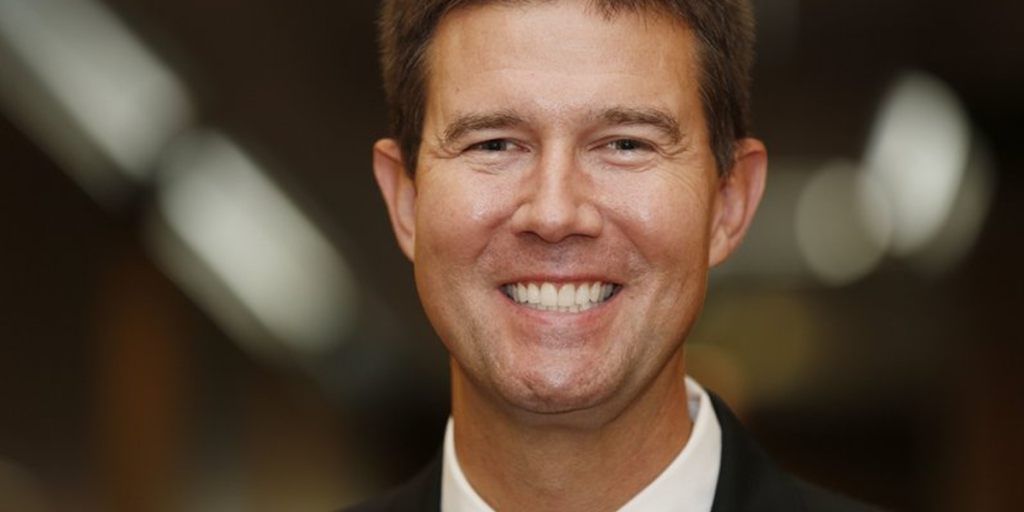
Earlier this month, H.R.4 was introduced by Representative Terri Sewell, who represents Alabama’s 7th Congressional District. H.R.4 is the latest attempt by Washington Democrats to nationalize our federal electoral system. In reality, H.R.4 is a solution in search of a problem. H.R.4’s advocates refuse to acknowledge the substantial progress our nation has made since the enactment of the Voting Rights Act of 1965. The legislation extends the practice of preclearance, the federal approval of any state’s election administration changes, to every state in the union and threatens to overturn many popular election integrity laws, such as Voter ID laws. What justifies this federal takeover of elections? The answer is nothing. It has never been easier to vote in America than it is today. Washington Democrats are attempting to manufacture a crisis in order to justify their unconstitutional power grab. At the Constitutional Convention, the framers were careful to ensure that each state retained its right to administer its own elections. However, today’s congressional Democrats assert that the Elections Clause of the U.S. Constitution grants them the authority to enact H.R.4, but many disagree with that assertion. The Elections Clause is a constitutional fail-safe, which is only applicable if a state is unwilling or unable to conduct their own federal elections. Many Federalists, like Alexander Hamilton, worried that the federal government could not survive if a portion of the states either refused to hold elections or were unable to hold elections due to war. In Arizona v Inter-Tribal Council of Arizona Inc., the Supreme Court confirmed that the Elections Clause was “the Framer’s insurance against the possibility that a state would refuse to provide for the election of representatives to the Federal Congress.” It is important to note that the Voting Rights Act has historically been justified by the 14th and 15th Amendments, but after a string of unfavorable court decisions, congressional Democrats have resorted to this approach. H.R.4 not only lacks proper legal standing, but current conditions do not justify the extraordinary measures that H.R.4 would implement nationwide. When examining the VRA’s coverage formula in their landmark decision, Shelby County, Alabama v. Holder, the Supreme Court stated, “The question is whether the Act’s extraordinary measures…continue to satisfy constitutional requirements. As we put it a short time ago, ‘the Act imposes current burdens and must be justified by current needs.” In Shelby, SCOTUS ruled that Section 4 of the VRA was unconstitutional because its “extraordinary” measures were no longer justified by current needs, and similarly, the burdensome measures proposed by H.R.4 are not justified by the conditions of 2021. It has never been easier to vote than it is today in Alabama and the rest of the nation. Since the beginning of my term as Secretary of State in 2015, we have registered 1,902,057 new voters, and we have a total of 3,602,266 registered voters. Since 2016, we have set records for voter participation in every primary and general election. In Alabama, 96% of African-Americans, 91% of White-Americans, and 94% of all eligible residents are registered to vote. Our office works hard each and every day to ensure that every Alabamian is able to register to vote and has access to some form of government-issued photo ID. It is beyond foolish to pretend as if we still live in the Alabama of 1965. I completely agree with Chief Justice John Robert’s observation that “no one can fairly say (the record] shows anything approaching the ‘pervasive,’ ‘flagrant,’ ‘widespread,’ and ‘rampant discrimination that clearly distinguished the covered jurisdictions from the rest of the nation in 1965.” If H.R.4 is enacted, then every state in the Union will be treated as if they were the “covered jurisdictions” of 1965 and placed under the authority of unelected federal bureaucrats. In fact, H.R.4 goes beyond the requirements of the original preclearance regime by requiring that all states seek approval from the Justice Department for certain voting practices regardless of whether they are discriminatory or if the state has met any other criteria for preclearance coverage. The goal of “practice-based preclearance” is obvious. Congressional Democrats want to cater to their far-left base by overturning current state election laws and stop any state from enacting future election integrity legislation in the future. H.R.4 is an attempt to outlaw Voter ID laws and other similar election security measures. Despite the fact that ID laws maintain widespread public support, the Democrats continue to claim that ID laws are discriminatory against minorities. However, the public disagrees. According to Rasmussen, 69% of African Americans support voter ID laws, and the Atlanta Journal Constitution also found that two-thirds of Georgia voters support voter ID laws. As John Adams famously said, “Facts are stubborn things,” but it does not appear that any amount of factual evidence will stop the congressional Democrats’ attempt to manufacture a crisis for their partisan agenda. Democrats continued to push this narrative despite the fact that Alabama increased participation in every primary and general election since 2016. The disparities of 1965 are not the realities of 2021, and congressional Democrats should stop refusing to acknowledge that fact. I encourage every concerned Alabamian to reach out to Senator Richard Shelby and Senator Tommy Tuberville and ask them to stop this unconstitutional federal takeover of our electoral system by congressional Democrats. If you would like to make your voice heard, please call Senator Shelby’s Office at (202) 224-5744 or Senator Tuberville’s Office at (202) 224.4124. John Merrill is currently serving as Alabama’s 53rd secretary of state.
Bradley Byrne: The absent congress
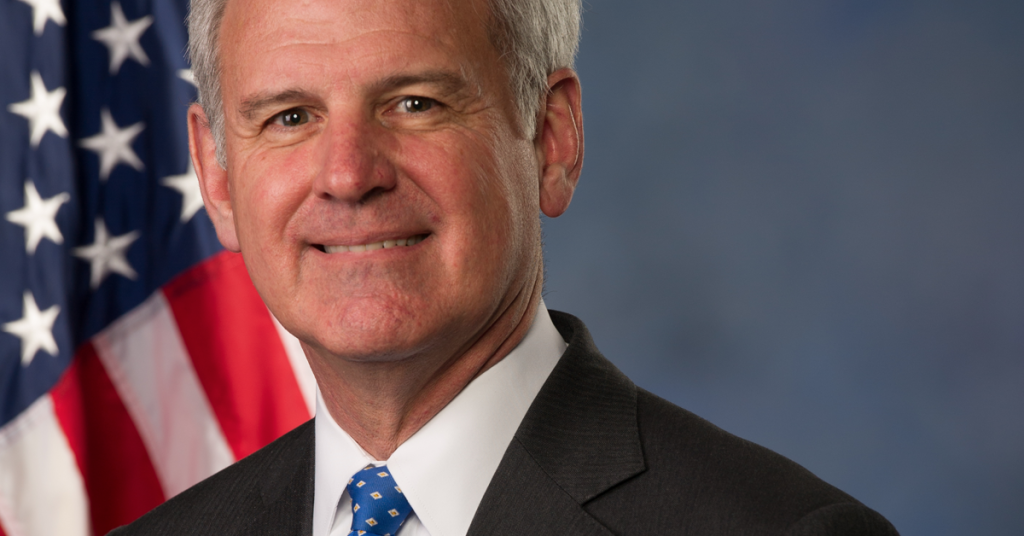
Bradley Byrne shares his thoughts on congress’ temporary ability to vote while away from the Capitol.
Donald Trump’s trial opens on fast track, Dems arguing for removal
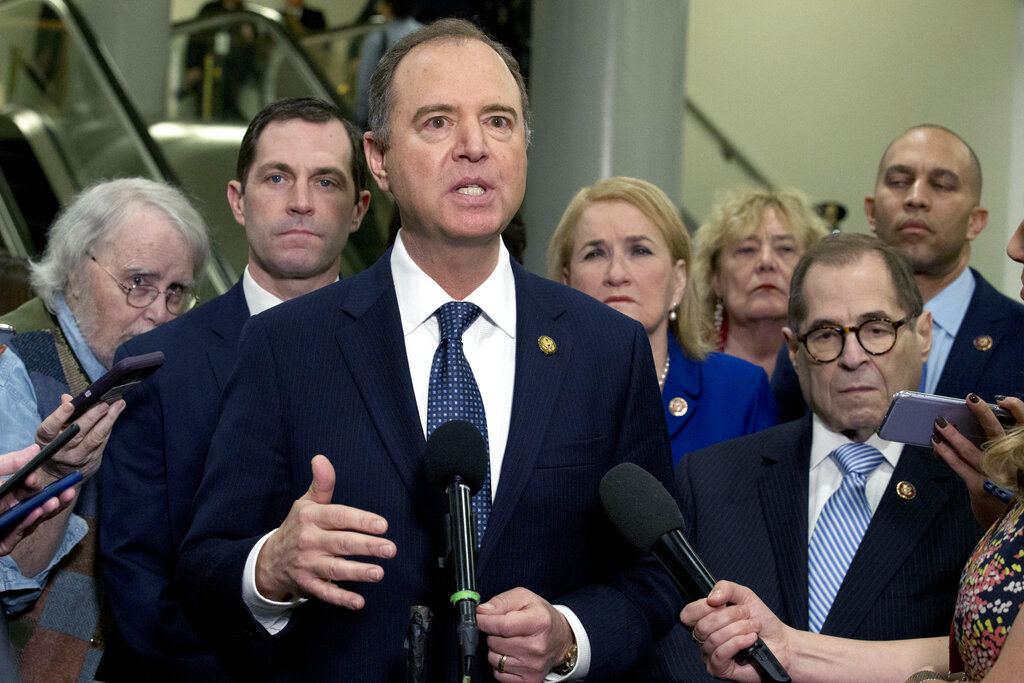
The House prosecutors will have 24 hours over the next three days to present their case.
Bradley Byrne: Impeachment lessons from the distant past
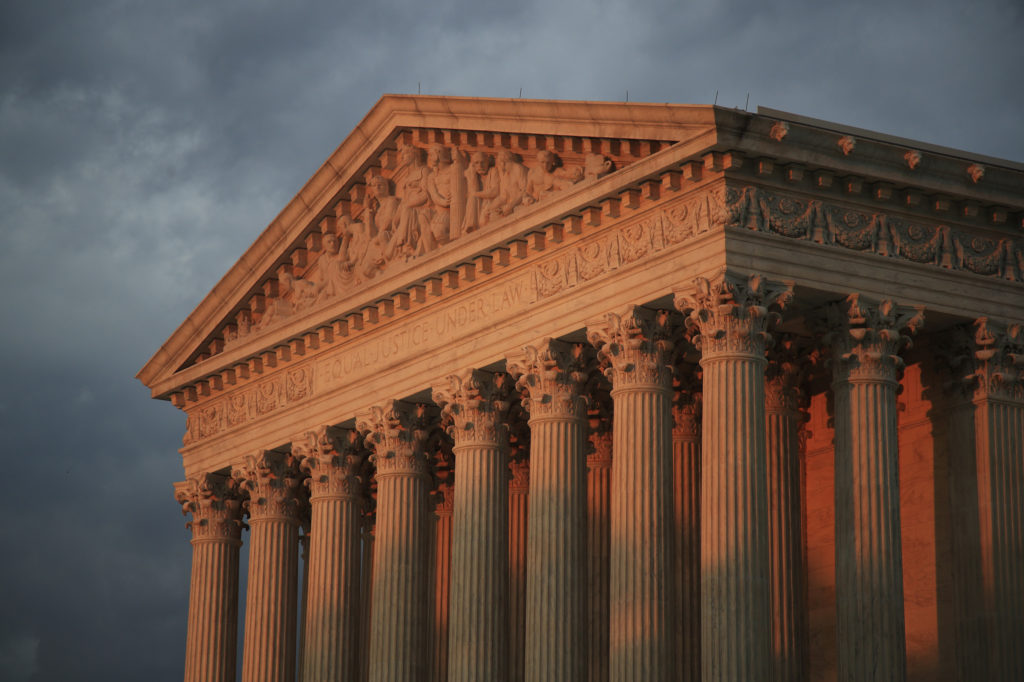
The first true test of the Legislative branch’s impeachment powers occurred over two centuries ago in 1805. Its parallels with the current impeachment process, and the important precedent it set for determining impeachable conduct, make it worth examining today. That long-ago impeachment battle was waged against Samuel Chase of Maryland, a justice of the United States Supreme Court. The episode is a stern warning against the use of the power of impeachment for political purposes. In 1804, President Thomas Jefferson resoundingly won reelection, and his Democratic-Republican party won large majorities in both the House and the Senate. With his control over the Executive and Legislative branches secure, Jefferson looked to the third branch – the Judiciary. The Supreme Court, comprised at that time of only seven justices, consisted primarily of appointees of George Washington and John Adams, both members of the opposing Federalist party. Jefferson had been angered by several Supreme Court rulings and considered the court an obstacle to his political agenda. He resolved to remove that obstacle. Jefferson saw Chase, an unabashed Federalist appointed by Washington, as the justice most vulnerable to being removed by a partisan impeachment. Jefferson and his allies blamed Chase’s partisanship for several of his rulings against Jefferson. They claimed this conduct was worthy of impeachment. However, what some of Chase’s opponents considered “judicial excesses” weren’t the real issue. Chase’s partisan leanings were merely a convenient excuse to eliminate an obstacle to the Democratic-Republicans’ unchecked political power. Our Founders warned against falling into the trap of impeachment over partisan squabbles. In the Federalist Papers, Alexander Hamilton warned of the “danger that the decision will be regulated more by the comparative strength of parties, than by the real demonstrations of innocence or guilt.” Therefore, the Constitution makes clear that the only impeachable offenses are “Treason, Bribery, or other high Crimes and Misdemeanors.” Did this disagreement on policy grounds rise to an impeachable offense? Nevertheless, with Jefferson’s directive, the House impeached Justice Chase on a party-line vote in a partisan show eerily reminiscent of today’s episode. It would be in the Senate, where Chase’s trial was to take place, where the Democratic-Republicans’ political motivations would come to a head with the Founders’ intentions. Some partisans would ignore the intent of our Founders. Senator William Giles of Virginia said impeachment is “nothing more than inquiry, by the two Houses of Congress, whether the office of any public official might not be better filled by another.” Of course, that contradicts what the Constitution clearly says about impeachment. Yet Chase’s opponents would leave no stone unturned in seeking a charge to stick as an impeachable offense. One of his defenders said Chase’s “footsteps are hunted from place to place, to find indiscretions, which may be exaggerated into crimes.” Does this sound familiar? Those Senators were keenly aware of the important precedent at stake. Most realized that whatever short-term political gains they might achieve would pale in comparison to the lasting detriment to our young nation if the Constitution and its separation of powers were to be undermined. Ultimately, after great deliberation, the Senate acquitted Chase, even with the Senate’s 24 Democratic-Republicans outnumbering its nine Federalists. Despite lacking evidence of an impeachable offense, Democrats have gone too far towards impeaching President Donald Trump to turn back. Never mind that only months ago, Speaker Pelosi said “impeachment is so divisive to the country that unless there’s something so compelling and overwhelming and bipartisan, I don’t think we should go down that path because it divides the country.” Just like in 1805, one party seeks impeachment to gain political power. This time, a president is targeted. This poses a great threat to our Republic, and I’ll continue fighting hard to stop this scheme and protect our Constitution.
Martin Dyckman: It’s always about the money
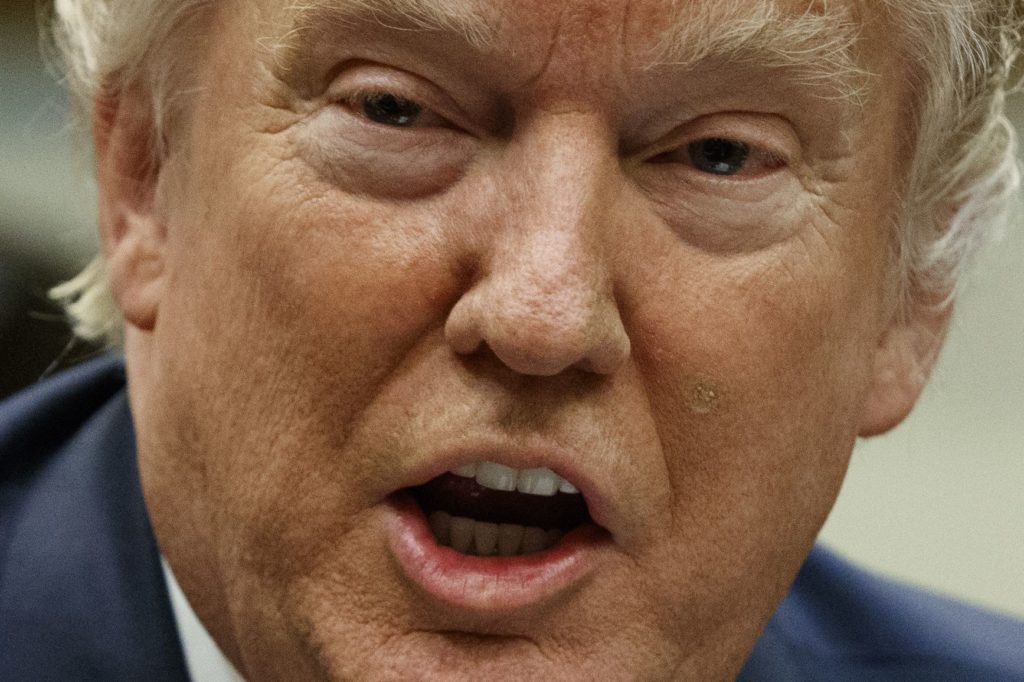
The Miami Herald columnist Leonard Pitts wrote a powerful case for Donald Trump‘s impeachment, in the style of an open letter to the “Dear Republicans in Congress,” that I was reading to my wife as she prepared breakfast the other morning. At the part where Pitts asked, “Have you no loyalties deeper than party?” Ivy broke in. “The money,” she exclaimed. That nailed it. It is always about the money. It’s about the campaign money they expect to continue bagging from the Kochs and other oligarchs who embrace the Trump agenda even as they despise the man. It’s about the money, the great gobs of money that would befall the wealthier classes, the true constituency for most of them, from the sort of tax “reform” they are counting on Trump to sign. It’s about the money they would gain for themselves from the Trump tax scheme. While the outlines he proposed are strikingly thin, they are enough to show that Congress members themselves would make out better than bank robbers. The middle class and poor would get essentially nothing. The foregone revenue would take America back to where the oligarchs want it — a sociopolitical stone age, with the new robber barons doing what they want and getting what they want, with only minimal interference, if any, from taxes, regulations or labor unions. The Congress does not simply represent the Republican Party’s true constituency. It is part of it. The most recent available figures estimated the average Congressional net worth at around $1 million. To be one of the richest 50 members required a minimum of $7.28 million in net worth. Of those 50, 32 were Republicans. There are Democrats, no doubt, who would vote for the outrageous Trump tax scheme if they thought their voters would forgive them. Most of the Republicans act as if they don’t have that particular worry. For the Democrats and the few Republicans who do care to put their country first, the question may well be whether it would be best to be rid of the guttersnipe in the White House sooner or later. From an exclusively partisan standpoint, it would suit the Democrats to have him still twisting in the ill winds of own making as the 2018 midterm elections approach. This would be better for policy as well, since every Republican Congress member who isn’t totally insulated by gerrymandering would have to worry about casting his or her vote with the extremely unpopular president. And the fact that Trump still refuses to release his tax returns, despite all the promises, raises profound suspicions about any tax legislation bearing his label. If Trump were dethroned now, whether by his Cabinet or by a late-awakening congressional conscience, the Democrats would be confronting in President Mike Pence someone who has a long-standing and genuine commitment to all the hideously anti-social policies that Trump never shared until he saw them as keys to the Republican nomination. Lacking Trump’s offensive personality, Pence could take America backward even faster and farther than Trump. The more important issues, though, are the clear and present danger of keeping an uneducated, uneducable and wildly impetuous man-child in proximity to the nuclear codes, the forfeiting of American influence and prestige for which he is responsible, and the disgust that sickens most of us with every new disclosure of his abuses of power and of the foreign influences in his campaign. Whatever happens in the short term, both political parties should be planning how to never again nominate someone so singularly unfit and dangerous as Trump. The electoral system was supposed to prevent that — “a moral certainty,” as Alexander Hamilton put it, “that the office of President will seldom fall to the lot of any man who is not in an eminent degree endowed with the requisite qualifications.” When Hamilton wrote “seldom,” he was not thinking “forever.” But the Founders provided for a day when their precautions would fail. At the outset, the party factions in Congress caucused to nominate their candidates for president. There was never a doubt as to their qualifications. No outsider cracked the system until Andrew Jackson came along, and he was much like Trump, who admires him, in being ill-informed, reckless and ruthless. Congress, for all its enormous faults, could be an inherently better judge of presidential timber than the present primary election system. But to try to give Congress control of who runs would be a fool’s errand, not to mention unwise. What Congress should do — what it must do — is to accept the constitutional responsibility the Founders assigned to it in the event of a rogue presidency. It is the fail-safe they wrote into the Constitution. As Pitts described it to the Republicans, “Your course of action, if you have even a molecule of courage, integrity or country love, should be obvious. Impeach him now.” ___ Martin Dyckman is a retired associate editor of the Tampa Bay Times. He lives in Asheville, North Carolina.
Darryl Paulson: The Founders were right — democracy is flawed
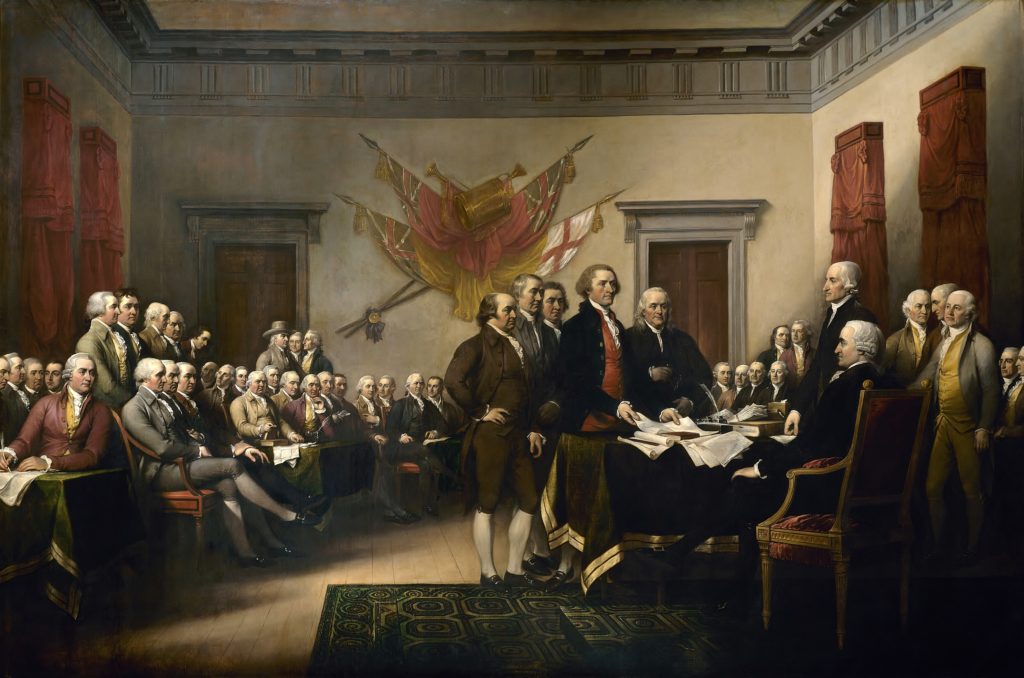
I expect the title of this op-ed will generate enough hate mail to keep me busy for a month. How can anyone oppose democracy? If the Founders hated democracy, who am I to disagree? The Founders recognized the inherent dangers of democratic government. Benjamin Rush, a signer of the Declaration of Independence, called democracy “one of the greatest evils.” Alexander Hamilton, better known for being a Broadway phenomena that one of the most significant individuals in the establishment of the United States of America, wrote that ancient democracies “never possessed one feature of good Government. Their very character was tyranny.” James Madison, one of the authors of the Federalist Papers, along with Hamilton, argued that there was nothing in a democracy “to check the inducements to sacrifice the weaker party or an obnoxious individual.” Over 200 years ago, Madison envisioned a future leader like Donald Trump. Madison, in Federalist # 10, wrote that democracies “have ever been spectacles of turbulence and contention; have been found incompatible with personal security or the rights of property; and have in general been as short-lived as they have been violent in their deaths.” Madison and most of the Founders believed republics were preferable to democracies because they protected against the tyranny of the majority. They created a system of indirect election of the president and checks and balances between the executive, legislative and judicial branches of government. Most Americans know that we pledge allegiance “to the flag of the United States of America and to the republic for which it stands,” and not to the “democracy for which it stands.” Critics of democracy claim that it is unstable and subject to frequent change. As a result, in 2017, 159 of the 206 sovereign states use “republic” as part of their name. 20th-century Italian political thinkers Vilfredo Pareto and Gaetano Mosca viewed democracies as an illusion. According to Pareto and Mosca, democracies portray themselves to be dominated by the rule of the people when, in reality, they are dominated by political elites due to the apathy of the masses. As Supreme Court Justice Louis Brandeis wrote a century ago, “We may have democracy, or we may have wealth concentrated in the hands of a few, but we can’t have both.” The 2016 election illustrates the limits of democracy. The normally sedate masses can be aroused by a leader who offers simple solutions to complex problems. Trump convinced enough voters that unless he was elected, America was at its end as a world power. Trump was also able to convince enough voters that he was the leader to transform America from its downward spiral and that he would “Make America Great Again.” As America’s political savior, Trump promised his political supporters that “I alone can fix it. I alone am your voice.” Many Americans are convinced that Trump is a new kind of leader who will restore America to greatness. I am more inclined to believe we have selected a false prophet who will lead America down a path of danger and destruction. ___ Darryl Paulson is Emeritus Professor of Government at USF St. Petersburg specializing in Florida politics and elections.
Lin-Manuel Miranda named AP Entertainer of the year

Winning a Pulitzer Prize and a clutch of Tony Awards in a single one year would be enough for anyone. Not Lin-Manuel Miranda. Not in 2016. The “Hamilton” writer-composer picked up those honors and also earned a Golden Globe nomination, won the Edward M. Kennedy Prize for Drama Inspired by American History, wrote music for a top movie, and inspired a best-selling book, a best-selling album of “Hamilton” covers and a popular PBS documentary. A new honor came Wednesday when Miranda bested Beyonce, Adele and Dwayne “The Rock” Johnson, among others, to be named The Associated Press Entertainer of the Year, voted by members of the news cooperative and AP entertainment reporters. “There’s been more than a little good luck in the year itself and the way it’s unfolded,” Miranda said after being told of the honor. “I continue to try to work on the things I’ve always wanted to work on and try to say yes to the opportunities that I’d kick myself forever if I didn’t jump at them.” Miranda joins the list of previous AP Entertainer of the Year winners who in recent years have included Adele, Taylor Swift, Jennifer Lawrence, Lady Gaga, Tina Fey and Betty White. The animated Disney juggernaut “Frozen” captured the prize in 2014, and “Star Wars” won last year. (By the way, Miranda wrote one of the songs in “The Force Awakens.”) When he hosted “Saturday Night Live” in October, he somewhat tongue-in-cheek acknowledged the rarity of having a theater composer as host, saying: “Most of you watching at home have no idea who I am.” They surely must by now. Miranda was virtually everywhere in popular culture this year — stage, film, TV, music and politics, while engaging on social media as he went. Like a lyric he wrote for Alexander Hamilton, it seemed at times that the non-stop Miranda was working as if he was “running out of time.” Julio D. Diaz, of the Pensacola News Journal, said Miranda “made the whole world sing, dance and think. Coupled with using his prestige to become involved in important sociopolitical issues, there was no greater or more important presence in entertainment in 2016.” Among the things Miranda did this year are asking Congress to help dig Puerto Rico out of its debt crisis, getting an honorary doctorate from the University of Pennsylvania, performing at a fundraiser for Hillary Clinton on Broadway, lobbying to stop gun violence in America and teaming up with Jennifer Lopez on the benefit single “Love Make the World Go Round.” He and his musical “Hamilton” won 11 Tony Awards in June, but perhaps his deepest contribution that night was tearfully honoring those killed hours before at an Orlando nightclub with a beautiful sonnet: “Love is love is love is love is love is love is love is love, cannot be killed or swept aside,” he said. “Now fill the world with music, love and pride.” He started the year onstage in the Broadway hit “Hamilton” (which in 2015 had won a Grammy and earned Miranda a MacArthur genius grant) and ended it with a Golden Globe nomination for writing the song “How Far I’ll Go” from “Moana,” which was on top of the box office for three weeks this month, earning $165 million. “I’ve been jumping from thing to thing and what’s been thrilling is to see the projects that happen very quickly kind of exploding side-by-side with the projects I’ve been working on for years,” Miranda said. Though theater fans have long cherished his fluency in both Stephen Sondheim and Tupac, “Hamilton” helped Miranda break into the mainstream in 2016. The groundbreaking, biographical hip-hop show tells the true story of an orphan immigrant from the Caribbean who rises to the highest ranks of American society, told by a young African-American and Latino cast. The cast went to the White House in March to perform songs from the show for the first family and answer questions from school children. A version of the show opened in Chicago in October and a production is slated to land in California next year and in London soon. When the gold-winning U.S. women’s gymnastics team returned from the Rio Olympics, where do you think they wanted to go? “Hamilton,” naturally, which they did in August. The show’s effects were felt across the nation this year, cheered by politicians, stars and rappers alike and even helping shape the debate over the nation’s currency (Hamilton stays on the $10 bill, in part due to Miranda’s show.) But the musical also sparked controversy when the cast delivered a pointed message about diversity to Vice President-elect Mike Pence while he attended a performance in November. President-elect Donald Trump demanded an apology, which did not come. That kerfuffle was part of a “Hamilton”-heavy fall that included an album of celebrity covers and songs called “The Hamilton Mixtape,” as well as a documentary on the show that aired on PBS and attracted more than 3.6 million television viewers. Erin O’Neill of The Marietta Times said Miranda dominated entertainment news this year but, more importantly, “opened a dialogue about government, the founding of our country and the future of politics in America.” There’s more Miranda to come in 2017, including filming Disney’s “Mary Poppins Returns” with Emily Blunt (due out Christmas 2018) and an ambitious TV and film adaptation of the fantasy trilogy “The Kingkiller Chronicle.” “I’m back in a planting mode after a harvest,” Miranda said, laughing. Republished with permission of the Associated Press.
Darryl Paulson: Voters don’t understand or like the Electoral College

Here are a few basic facts about the electoral-college system. First, very few voters understand how it works. Second, most voters hate the system. Third, the system is almost impossible to change. Those who drafted the Constitution had little trust in democracy. James Madison, in The Federalist Papers, wrote that unfettered majorities tend toward “tyranny.” John Adams, signer of the Declaration of Independence and second President, noted that “Democracy never lasts long. It soon wastes, exhausts, and murders itself. There never was a democracy that did not commit suicide.” Reflecting their distrust of democracy, the drafters of the Constitution wanted to create a process where the president would be indirectly selected. Direct election was rejected because they believed that most voters were incapable of making a wise choice. Voters would likely vote for a well-known person, especially one from a voter’s home state. A Committee of Eleven was appointed and they recommended a compromise where each state would appoint presidential electors equal to the number of representatives and senators. The electors would cast a vote for president and vice president. The candidate with the most votes would be president and the candidate with the second highest vote would be vice president. The compromise was accepted and Alexander Hamilton described the electoral-college plan “if the manner of it be not perfect, it is at least excellent.” The compromise worked until the 1800 presidential election when electors cast an equal number of votes for Thomas Jefferson, who the Anti-Federalists wanted to be president and Aaron Burr, who they wanted as vice president. After 36 ballots, the House selected Jefferson as president. The 12th Amendment, adopted in 1804, separated the electoral vote for president and vice president. There is little doubt that Americans hate the Electoral College system and prefer the direct election of the president. The system has allowed the election of four presidents who lost the popular vote, but won the electoral vote. In 1824, Andrew Jackson won the popular vote, but lost when the House selected John Quincy Adams. In 1876, Samuel Tilden won the popular vote by a quarter million votes, but lost the electoral vote to Republican Rutherford B. Hayes. In 1888, Grover Cleveland received more popular votes but lost to Republican Benjamin Harrison. Finally, in 2000, Democrat Al Gore won the popular vote, but lost the election when Florida’s electoral votes were awarded to George W. Bush. Another complaint about the electoral college is that the winner-take-all feature does not reflect the popular will. A candidate with a plurality of the popular vote would win all of a state’s electoral votes in a three or four person race. Critics contend that the system discourages candidates from campaigning in states that they are sure to win or lose. No sense wasting time and money campaigning in those states. Instead, all of the attention is focused on a half-dozen competitive states like Florida and Ohio. If no candidate gets a majority of the electoral votes (270), the election is thrown into the House of Representatives. Each state, regardless of population, gets one vote. The least populated state has one vote; the most populated state gets one vote. If a state delegation’s vote is equally split, they get no vote until the deadlock is broken. Although reforms of the system have been pushed, the likelihood of reform is small. Small states, which have disproportionate power under the plan, are not likely to give up that power to support direct election. Supporters of direct election argue that it is the most democratic, which is precisely why the drafters of the Constitution dismissed it. Supporters also argue that it would force candidates to conduct national campaigns since every vote would matter. Critics of direct election argue that it would create gridlock in close elections. Imagine having to review over 100 million votes in a close election to see if they should be counted or dismissed. Would voters have confidence if a candidate won by a few thousand votes? What does the electoral-college system tell us about 2016. Hillary Clinton is a flawed candidate seeking a third consecutive win for Democrats, something that is difficult to do. However, we know that Republicans are not happy with either Donald Trump or Ted Cruz. The possibility of a contested convention further muddies Republican chances. A look at the electoral-college maps shows that Democrats usually win fewer states than Republicans, but they win the states with large numbers of electoral votes. While the electoral-college map of America looks overwhelmingly red, it is likely the Republicans will end up feeling blue. Larry Sabato, of the University of Virginia, projects that in a Clinton-Trump election, Clinton is likely to win 347 electoral votes to Trump’s 191. If so, an easy Clinton victory means there will be no pressure to reform the electoral-college system. *** Darryl Paulson is Professor Emeritus of Government at USF St. Petersburg.


